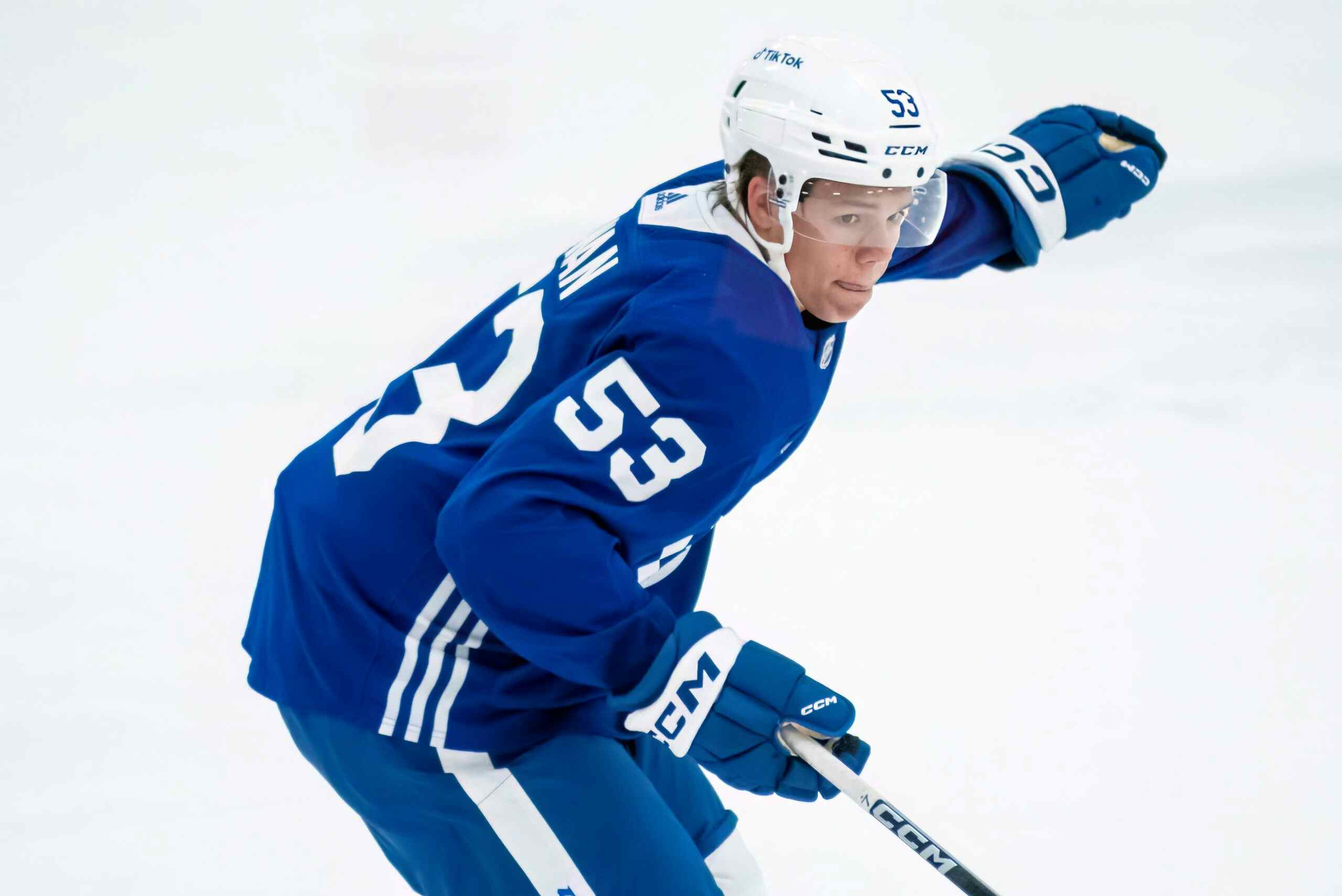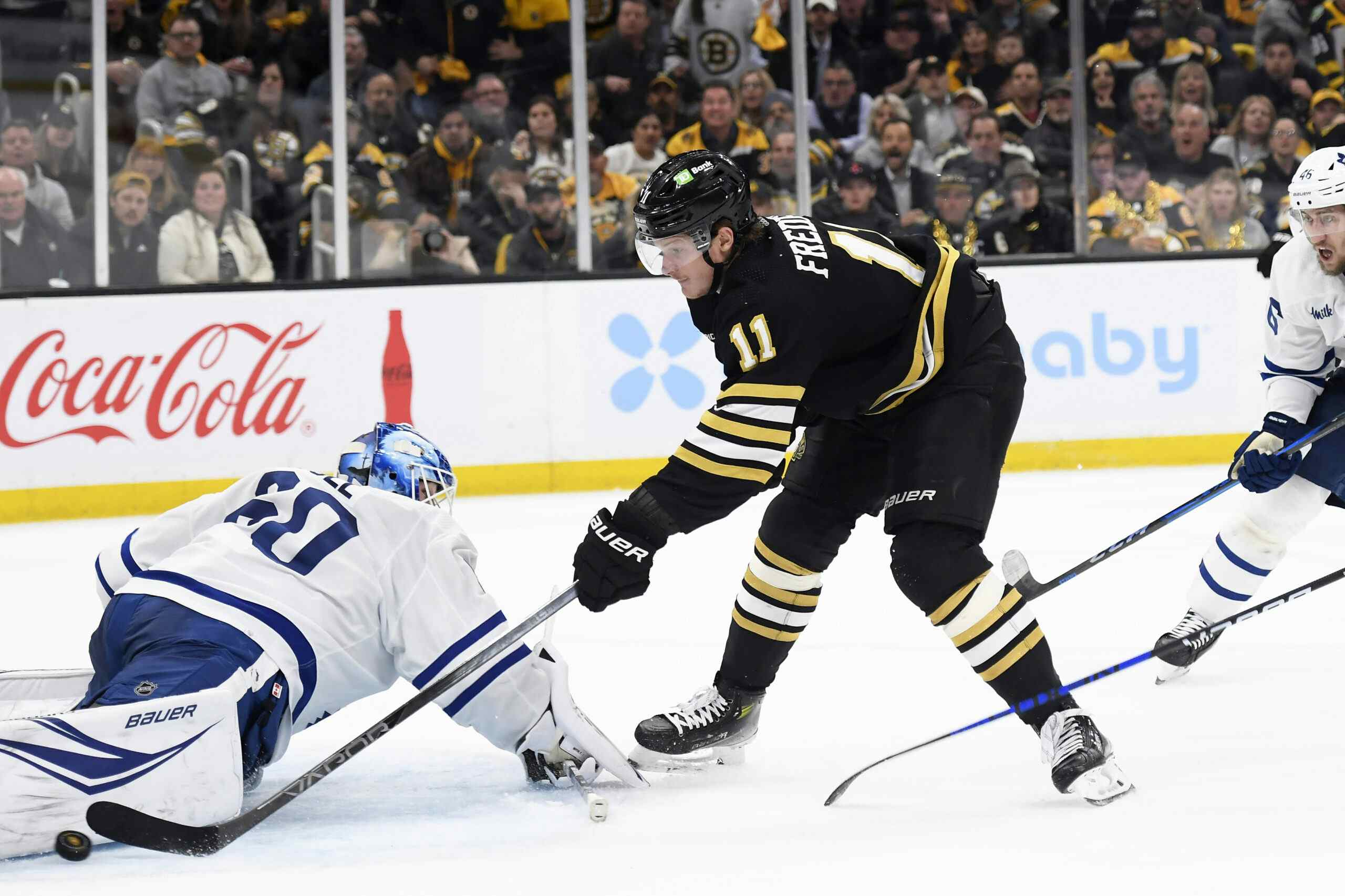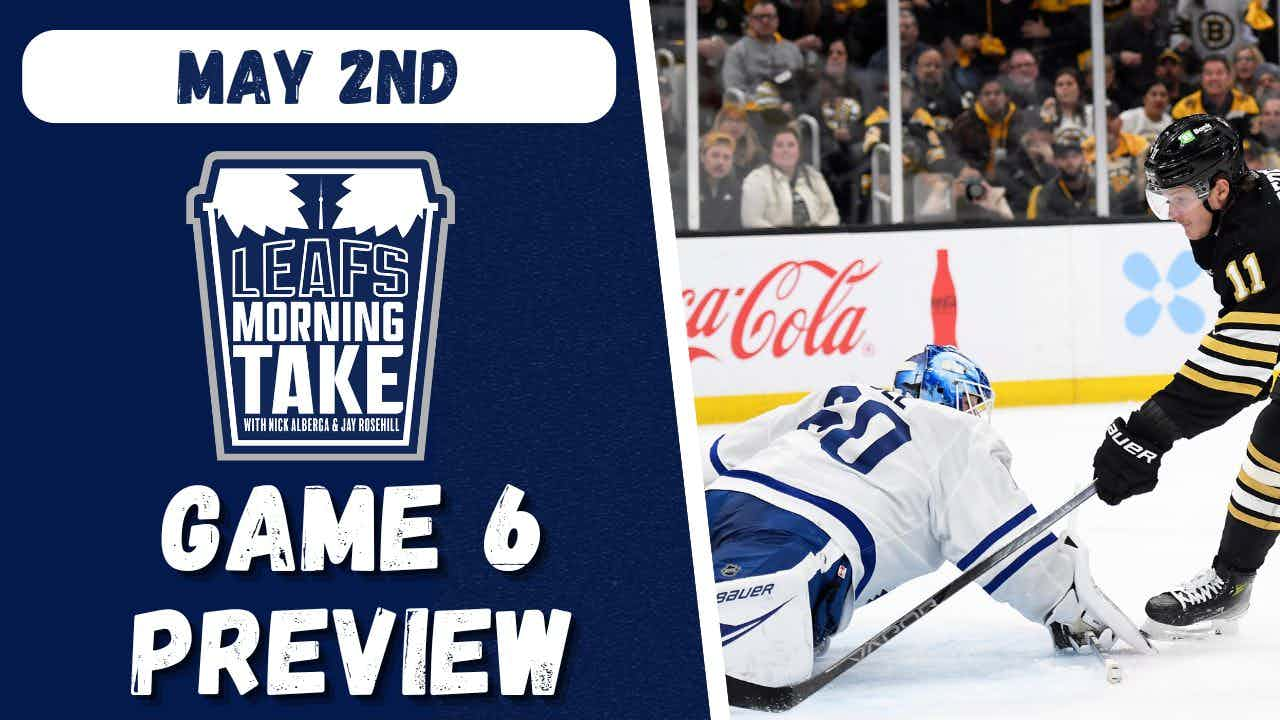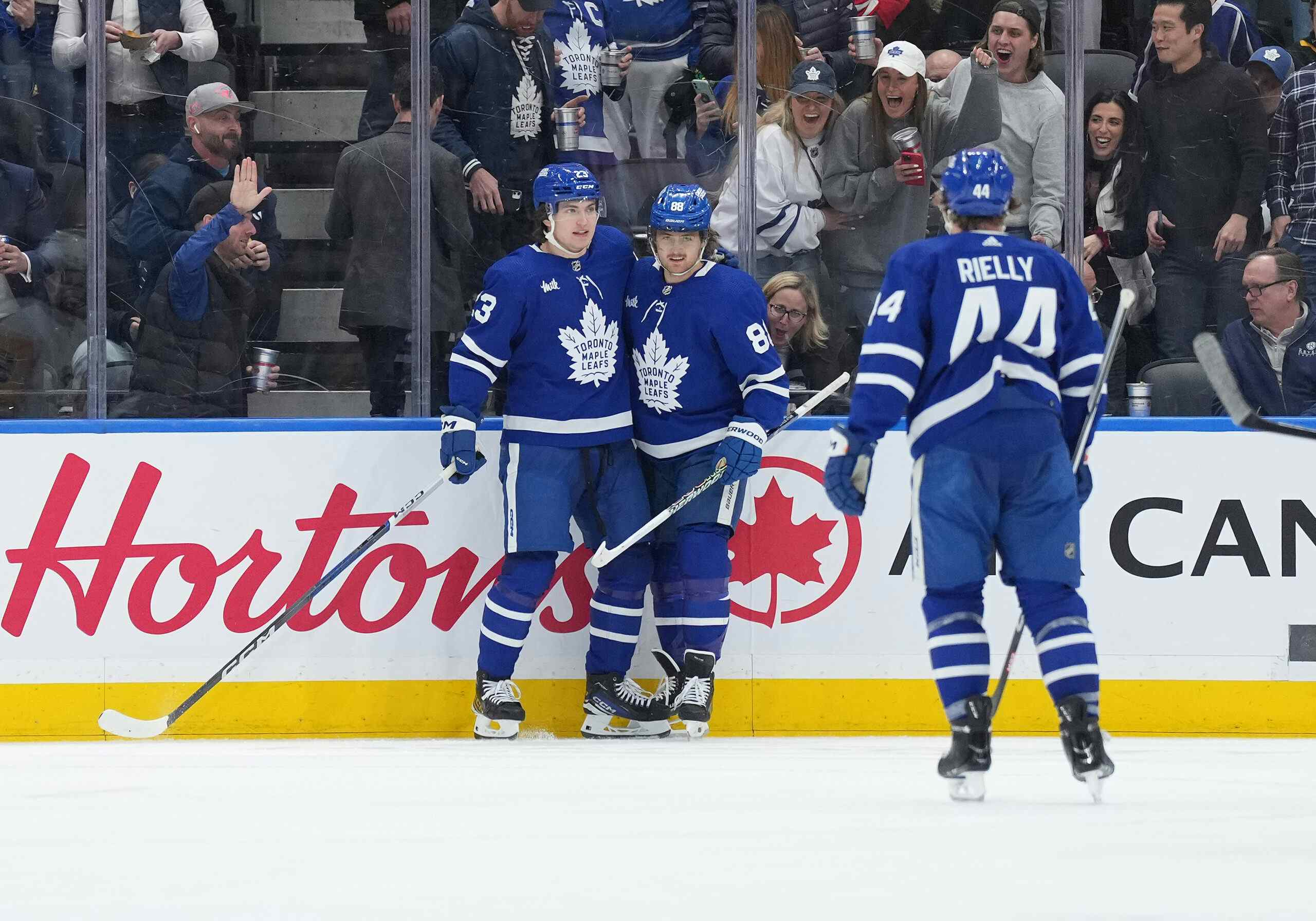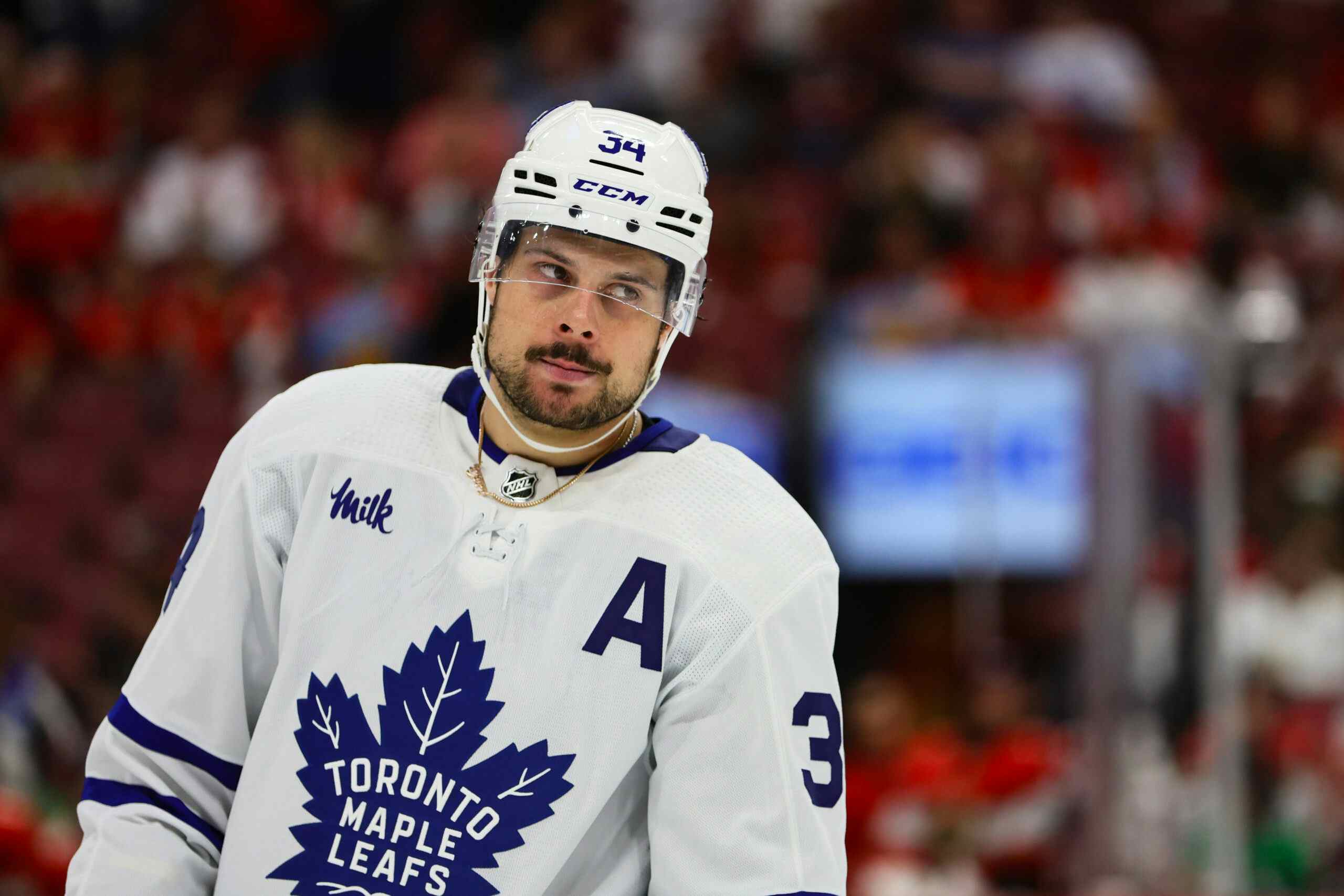The Next Step

With the Brendan Shanahan news confirmed by the everybody involved (the entire media reporting the speculation kind of rushed the process), there’s a lot of wonder as to what this means for the team. Here’s some speculation and suggestion making the rounds right now.
On The Air
This morning, I listened to some Toronto sports radio, and by “listened to some Toronto sports radio”, I mean its 2014 and I actually just scrolled through @Hope_Smoke’s tweets. Gotta give the guy credit, he’s adding permanance to people’s words by quoting them, which these days is an essential service. Anyway, on to what was said.
Dreger “Nonis would have no problem working with Shanahan”
First thing’s first. Darren, I know you’re just defending your cousin, but this has to be the 5th or 6th time you’ve said this on the air in the past 48 hours. If any employee has an issue with co-operating with his boss, they’re usually fired on the spot. This isn’t rocket science.
Dreger “names that are circulating around Shanahan are Martin Lapointe, Kris Draper and Pete De Boer as a coach”
There’s a lot of reason to be optimistic about this idea, actually. Lapointe and Draper are more than just Shanahan’s former teammates; they’ve got some front office experience as well.
Draper is currently wrapping up his third season as Special Assistant to the GM with the Detroit Red Wings. His role is in player evaluation and giving occasional input; basically the role that Cliff Fletcher theoretically has with the Leafs right now, except with input coming from somebody literally half Cliff’s age. Lapointe spent three years with the Blackhawks as a professional scout, and is about to hit the two year mark as Director of Player Development for the Montreal Canadiens.
I doubt either are being looked at to be, say, a General Manager. But both are aware of the development model the Red Wings use, something that Leafs management has suggested they want to mimic over time.
The meat of this idea, however, is Peter DeBoer as (presumably) head coach.
Currently the bench boss for the New Jersey Devils, DeBoer seems to lean to a defensive style of play that limits risk taking in an effort to minimise shots against. This suits the Leafs perfectly; there will probably be some adjustments made to allow some of the more offensively minded players some free reign, but the idea of it makes sense.
As well, DeBoer has familiarity with chunks of this roster. He coached Nazem Kadri when he was on the Kitchener Rangers and is a major fan of his. There’s a feeling that Carlyle hasn’t allowed Kadri a chance to make the leap to the top line, so maybe this will be the man to do it? The two worked together to win the 2007/08 OHL Championship, where Kadri had 91 points in 88 regular season and playoff games as a 16 year old. They eventually made it to the Memorial Cup Finals, but lost to the Spokane Chiefs.
DeBoer also has experience with David Clarkson, coaching him in his breaking 30 goal, 46 point season. I don’t have a lot of confidence that he’ll ever get back to those numbers, but perhaps DeBoer is aware of how to at least somewhat make him work stylistically?
Lastly, he has a very long standing familiarity with Toronto Marlies head coach Steve Spott. Spott was his assistant coach for nine seasons in the OHL, both with the Plymouth Whalers and the Kitchener Rangers. When DeBoer left for the NHL, Spott became Kitchener’s head coach.
DeBoer is on the last year of his contract with the New Jersey Devils, and if the right circumstances are met (“here’s a boatload of money to come back home, Pete”), he could leave without being fired. The Devils also finished out of the playoff picture this year, but for a team that lost star forwards for nothing in back to back years, lost every shootout they played in, and had an unspoken obligation to play a now-terrible Martin Brodeur, it’s impressive how close they came to making the postseason to begin with.
On The Interwebs
Michael Grange wrote an interesting piece today about how he feels Shanahan should act moving forward. Basically, the Leafs have a ton of money and should be spending it where they can. To summarize:
- The Leafs have a lot of scouts, but there’s no limit, so they should get more scouts.
- The Leafs have no analytics department, but should be investing heavy into the idea.
- The Marlies should be a world-class developmental organization, better than most NHL teams in terms of resources to grow players.
- There’s a limit to what they can spend on players, but there’s no reason they shouldn’t be throwing around other money like other super-clubs to make themselves better.
Grange offers a lot of interesting points. When the team’s profits are rumoured to be approaching the nine digit mark annually, and it’s a given that playoff success will lead to even more income and a bigger out-of-market fanbase, why wouldn’t the Leafs invest?
In many respects, the Leafs have already done a lot of this. They have one of the bigger scouting departments in the league. Their upper management has more people in it than any other team in the league. The Marlies do have a lot of resources (Jerred Smithson last week: “It’s NHL. I’ve been on NHL teams that don’t even have that stuff.”). But the team is thinking like an NHL club with a little bit more buying power and a local affiliate.
Look at technology companies. The Leafs are Microsoft of a few years ago; refining their current products bit by bit with no innovation for the sake of innovation. They need to become Google, who despite being a search engine that makes money off of ads, thought outside the box to invent products to integrate their core services into. Now they don’t just get you when you need to look something up, they get you when you check your email, use your phone, watch videos, and in many other ways.
The Leafs want to monetize you too. They need to win more to monetize you more. If they can think out of the box and find ways to make themselves better and more interesting to you, they’ll be more successful on the balance sheets in the long run. If they can innovate and become a world class organization, the rest will come easy. Players will want to be a part of it, which means less overpaying to make acquisitions happen and less missing out on your targets. Players will want to stay a part of it once they’re here. Your team remains dominant as a result.
You’ll get some people who are standoffish to the idea. Take Doug MacLean, who is Grange’s coworker, this afternoon:
“I look at the Leafs. They need a number one centre and more defense more than they need a president and more layers of management”
They do need to improve the player personnel. We all know this. Some of us have known it longer than others. But just because one thing needs to be improved, doesn’t mean that you can’t fix others. Especially when we’re talking about non-cap repairs. If you have to decide between a number two defenceman and a scoring winger? Okay, sure. In that case, you pick the better commitment.
But this team’s back-end isn’t one guy with ADD who can only do one thing at a time. Lots of people are at play. Why can’t your GM look at players while your CEO looks at Presidents? You can’t fix an organization top to bottom in a reasonable time frame if you focus on one issue at once. Take advantage of your resources and do as much non-conflicting work as possible. Some of it may help. Some of it may be ignored. But if this team is serious about commitment, they should be exploring as many avenues as possible in parallel, not consecutively. It’s more productive that way.
Recent articles from Jeff Veillette

